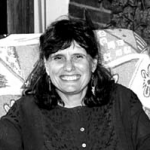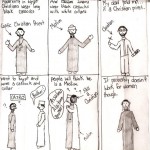
In the last two weeks, many media outlets have been covering the case of Kathy Boudin, an adjunct professor at Columbia University’s School of Social Work who was convicted of murder for participation in a 1981 killing of two police officers and a security guard in Nyack, north of New York City. At the time, she was a leftist radical. In 1984 she went to prison, was released in 2003, and joined the Columbia faculty in 2008. The New York Post and Fox News “found out” about two weeks ago that Boudin was at Columbia, launching a firestorm of often editorialized, often factually inaccurate, media coverage opposing her presence on the university faculty. Almost no media voices have spoken in favor of Boudin, and despite reports by many, many major media outlets (the Daily News, Newsweek, Rush Limbaugh, Forbes, etc.), none of them have actually added any significant information to the stories. They have all based their writing on the Post‘s version of the story, a YouTube video with a 49 second clip of Boudin speaking at New York University, and various public statements made by people connected with Nyack and its environs [Update, April 21: Reader Mb, in the comment section of my previous piece, has alerted me to the presence of the video of the entire lecture on YouTube.] In other words, nobody seems to have been actually been doing any real journalistic legwork — just reprinting other peoples’ content, and then presenting opinion.
I do not have an opinion on whether or not Kathy Boudin should be a professor at Columbia, and believe there are good arguments for and against. I have affiliations with various institutions in this case, including Columbia, and National Review, a conservative journal critical of the school. In my last piece I disclosed those affiliations, presented research into Boudin’s past and her statements of remorse, and analyzed the truth and falsity of various claims made in the current media discourse. In the series of two pieces you are now reading, I am going to respond to some of the questions that readers raised in my last article, questions which have echoed across the media. They all boil down to one basic line of enquiry: what impact is Boudin’s presence on the Columbia campus actually having on students?
I went out with my audio recorder yesterday and approached, in total, 66 Columbia students, to find out what they know and think about Boudin. Nine knew who she was. I started at the School of Social Work, speaking to three students who have actually had her in class. These interviews are printed here. In Part II of this article are the transcripts of interviews with Columbia students who have not had Boudin as a teacher. Some of these students wished to remain anonymous; others provided their names. For the ones that have provided their names, I have also included the actual audio of the interviews. I have the audio of the students who wish to remain anonymous, and I will provide it privately to anyone wishes proof of those interviews.
I posed to these students questions directly quoted from the comments section of my last post:
– What kind of a job is she doing?
– What are the views she teaches? Are they radical, or terrorist, as some commentators have claimed?
– “What type of signal does this send to the students — hey, it’s okay to participate in an act of murder, you can still get a position at a prestigious college?”
For later posts, I may try to interview Columbia faculty and administrators, and then people connected with Nyack. Your comments are welcome at the bottom of this article.
* * * * *
Audio of this interview: Columbia Social Work Student Sarika Singh Speaks About Professor Kathy Boudin
Former Boudin Student Sarika Singh: So I just had her for a human behavior and social environment course, and I thought she was wonderful. She spoke a lot about different issues, and she didn’t really share much about her personal experience, but she just had so much to say, and gave us such a good perspective.
Erik Campano: Yeah. Interesting. OK, so, here are some of the questions that people have for the students. What views does she teach?
She taught a lot about re-entry programs and that was my interest coming into her course, and just how what choices there are for people to get back into, I guess, education, or a job setting, and that was a lot about what she taught in that regard.
Some people online have been concerned that she’s, like, teaching radical leftist —
No.
— ideologies.
No. She’s teaching, basically, what, not really anything from her perspective, but basically just different theories in general. Because it’s a life-course perspective course that we’re learning about. So, just different theories in regards to that.
Did you know about the history with her being in prison and stuff —
Yes.
— while you were taking the class, too?
Yes.
OK. Did that affect your choice of whether to take the class?
I actually — I didn’t know prior to taking it, but once I was in the class I knew about it and I didn’t want to like drop it or anything like that.
So, some people say that — I’m reading from the comment now — “what type of signal does this send to students? Hey, it’s OK to participate in an act of murder. You could still get a position at a prestigious college.” So, what’s your response to that?
I think that she served the time that she had to serve, and now she’s doing something positive with her life, and she’s using her experiences to help students.
Are you saying any of these things because you want a good grade?
No.
Would you like to say your name? It’s more helpful for my article.
Sure, Sarika Singh.
* * * * *
Former Boudin Student 1: I just think that she was a fabulous professor. I mean, she carried a great deal of professionalism, honesty, and candor, that was incredibly rewarding as a student in her class. She’s incredibly knowledgeable about the prison system, and shared very little about her personal experience. She disclosed her past to us at the beginning of class, but didn’t get into great detail, and I just really enjoyed my time with her and my experience in her class.
Did the question of her prison — or, imprisonment — come up as a topic in the class?
No. She disclosed that she — the first class, disclosed that she spent time in prison, and said I’m not going to get into details about it, and no. She presented material that was not connected with her personal experience.
What was the actual class?
It’s our human behavior in the social environment, and it was a module on the prison system.
OK.
And it was three weeks long.
OK. Cool. So one question that a lot of people have been asking is what kind of views she teaches. What’s your answer to that?
I think it’s objective, frankly. I think she’s presenting the research and the reality of the system, and I don’t think there was any slanted or subjective view. I mean, I think students shared their discomfort or disdain for the system, and we talked about it as a class, but I don’t think that she really presented anything in a particular light.
OK. Some people are worried that she’s espousing radical views —
No.
— or terrorist views —
No. Not even close to the truth. No. There was no feeling of that at all in her class.
Got it.
What is your article, what’s your angle on it?
My angle is objective, unlike everybody else I’m actually trying to write a non-partisan, multiple-sided story on this. My first sentence is: I do not have a position on whether she should be teaching at Columbia or not.
Yeah, it was really appalling as a student to see all this negative press that came out, because there was none of it in her class. I found it so amazing to be learning what she was exposing us to, and learning more about the prison system, and I just thought she did an amazing job.
OK, there’s one more comment that somebody made that I’d like you to respond to. What type of signal does it send to students? Hey, it’s OK to participate in an act of murder. You can still get a position at a prestigious college.
I’m sorry, can you say it again.
Here. You should read it.
What type of signal does it send to students? Hey, it’s OK to participate in an act of murder. You can still get a position at a prestigious college. I think that’s beside the point. I don’t think that’s really speaking to the details of what happened. I mean, I — we’re social workers, and in the context of what we’re taught, we’re taught to work within the individual, based on, you know, what they’re presenting to us, and if we were to go around placing judgment all the time on someone’s past, and all the laws that they’ve broken, I mean, half of us couldn’t even be in this school —
Sure.
— you know, and I don’t really feel that this speaks to her character, her experience, and what she’s offering as a professor.
So do you think it’s OK to participate in an act of murder, and — because that’s essentially what they’re saying. It’s OK to participate in an act of murder. You can still get a position at a prestigious college.
I mean, if that’s the case, then there are other people that have — I’m not condoning, I’m not saying that this thing, that she was involved with was right or just, but I also don’t know enough about it to really make a statement on it. So I’m not really going to comment about it.
No problem. And you wish to remain anonymous, right?
Yes.
* * * * *
So, you had a class with her?
Former Boudin Student 2: Yes.
What class was it?
HUB[unintelligble].
What does that mean?
I’m not sure of the acronym actually.
OK. And what was she like as a professor?
She has a wealth of information. She cares for her students. She takes the time out to really explain things.
That’s awesome. OK, what about in terms of her background, her prison record. Do you know anything about that?
I read on it, but it shouldn’t define who she is. She is a professor now, and because of what she knows, and how informed she is in the area, it helps her work.
So, some of the commenters on my article, right, online, at Patheos, have questions. What are the views that she teaches?
To me, she stayed neutral.
Did she say anything that you would characterize as radical —
No.
— or leftist, or terrorist?
No.
And what kind of job do you think she’s doing, on the whole?
Like, in terms of being a professor?
Yeah.
She’s doing a good job to me.
OK. Have you known her outside of class at all?
No, I’ve never had a chance to speak to her outside of class.
Cool. If you would like, I’d like to have your name. It helps strengthen it, but you don’t have to.
No.
OK. No problem. Are you saying these things to get a good grade?
I already her class, she’s done. I don’t need her.
* * * * *
To Part II of II of this article.












